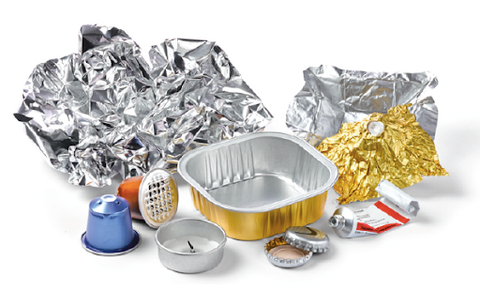Recycling disposable coffee capsules: myth or reality?
After massive ecological awareness over the past decade, single-use coffee capsules have been strongly criticized for their negative impact on the environment. We are talking about an ecological disaster, that is to say.
A few figures to begin with: every minute, around 39,000 capsules are manufactured worldwide, of which 29,000 end up in landfill, or 3/4 of the capsules. This is equivalent to around 20 billion capsules produced each year, of which 15 million are discarded in nature.
While most brands haven't done much so far (financial conflict of interest - necessarily), one of them has decided (or rather felt obligated) to set up an ambitious recycling program: Nespresso. Of course.
But what are they really doing when it comes to recycling? Is it really effective?
Analysis.
A giant who makes ... limited efforts
Buy, brew, throw away. George Clooney started his campaign in 2006. Fifteen years later, the world leader in disposable capsules is stronger than ever. In Western Europe, pods and capsules represent a third of the coffee market (c. 20 billion euros) and this sector is experiencing impressive growth: 9% per year since 2011, compared to 1.6% for the coffee market in general, based on an analysis we got from Rabobank.
"What we're seeing with coffee pods is a disturbing example of the linear, disposable, single-use society that many of us would like to see become circular," says David Newman, international waste management expert and CEO of the Biobased and Biodegradable Industries Association.
So there you have it, a new wave of Nespresso-compatible compostable pods have arrived, delivering great coffee in a convenient and environmentally sustainable packaging. But it is not that simple...
Coffee capsules and pods are generally made from materials such as aluminum and polypropylene which are certainly recyclable (in the case of aluminum, endlessly) but which, most of the time, are not recycled.

What are the limits?
The fact that they are often made of both plastic and aluminum makes them difficult to recycle, Hamburg city officials told the Telegraph. Translation: They will end up in a black bag, buried or incinerated. And so much the worse for the planet. So Hamburg has simply banned the sale of disposable capsules in the city's supermarkets.
The problem is found in disposable cups, where the fusion of two different materials also creates a puzzle for recycling companies. City councils generally do not collect the cups or capsules, so it is up to the producers to find alternatives.
The Nespresso recycling network
Nespresso, which has been criticized for its capsules because of its considerable market share, has launched its own recycling program.
in 1991.
Customers in 44 countries can now bring their used capsules to one of the 120,000 collection points worldwide. What have been the results for 30 years? Nespresso doesn't know. "We're trying to find a way to measure [rates] more accurately because I think we should report on it," says Katherine Graham, brand communications manager.
That's hard to hear, especially since Nespresso has already disclosed that 25 million Swiss francs (about 23.5 million euros) are invested in the project every year - and according to the Clean Ocean Project, "recycled aluminum cannot be used to make new capsules". This is why Nespresso (and its competitors) always needs primary aluminum. This is a shocking flaw, both economically and environmentally.
Mark Hilton, an expert in resource utilization at the consulting firm Eunomia, has a term for it. "It's greenwash," he says bluntly. Mark suggests it's a way to divert attention and delay potential regulation, and he's not alone in his misgivings. Others we've talked to suggest that recycling rates are unlikely to exceed 5% and consider the project "completely absurd". Without any statistics provided by Nespresso in today's data-driven world, it's hard not to be circumspect - and those promoting compostable products know it.
They would surely shout it from the rooftops if the project were successful.

